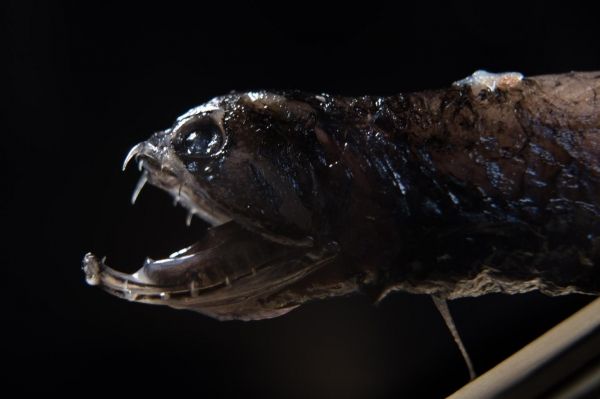A team of researchers led by the University of California San Diego have discovered what’s responsible for making the teeth of the deep-sea dragonfish transparent. This unique adaptation, which helps camouflage the dragonfish from their prey, results from their teeth having an unusually crystalline nanostructure mixed with amorphous regions. The findings could provide “bioinspiration” for researchers looking to develop transparent ceramics.
Researchers detail their findings in a paper published June 5 in the journal Matter.
Deep-sea creatures have evolved some fascinating adaptations such as bioluminescence, eyes that can see in low light, and mouths that can engulf much larger prey. Some species, such as the deep-sea dragonfish (Aristostomias scintillans), have transparent teeth.
“It’s an adaptation that, to our knowledge, has not yet been explored in detail,” said Audrey Velasco-Hogan, a materials science PhD student at the UC San Diego Jacobs School of Engineering and first author of the study. “By studying why these teeth are transparent, we can better understand deep-sea organisms like the dragonfish and the adaptations they evolved to live in their environments.”
Read more at University of California - San Diego
Image: Deep-sea dragonfish with transparent teeth. (Credit: David Baillot/UC San Diego Jacobs School of Engineering)


